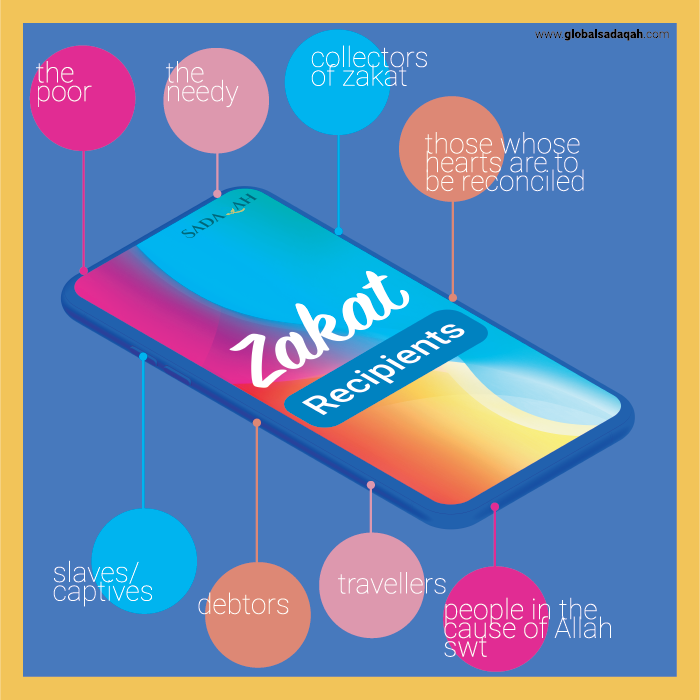What is Zakat Al-Fitr? Apart from being known as Sadaqah Al-Fitr, more importantly it is known as the type of Zakat that has to be paid before the Eid Ul-Fitr prayer. It also carries the name of Zakat-Al-Badan (The body tax) or Zakat-Al-Ra’s (The head tax). This Zakat is established mainly to cleanse a Muslim individual from any shortcomings or mischief conducted during the month of Ramadan. Additionally, Zakat Al-Fitr is given to the poor and needy at the end of the fasting month, Ramadan, mainly to celebrate the upcoming Eid with happiness and stress-free!
The following hadith also proves that Zakat Al-Fitr is not just a lending hand to the poor and needy but rather a favour we do to ourselves to remove any sins we have committed during Ramadan.
Ibn ’Abbas (RAA) narrated, ‘The Messenger of Allah (Peace be Upon Him) enjoined Zakat ul-fitr on the one who fasts (i.e. fasted during the month of Ramadan) to purify him from any indecent act or speech and for the purpose of providing food for the needy. It is accepted as Zakah for the person who pays it before the Eid prayer and it is Sadaqah (i.e. voluntary charity) for the person who pays it after the Eid prayer.’ (Abu Dawud)
Here are 5 things you should know about Zakat Al-Fitr
Who Should Pay Zakat Al-Fitr?
Zakat Al-Fitr is an obligation upon every Muslim, grown-up or a child regardless of the gender, as long as they have what is sufficient to feed them for a day or longer. The head of the family pays for every single member of the family.
When Should You Pay?
You can start giving Zakat Al-Fitr in the last few days of Ramadan and it must be completed before the Eid Ul-Fitr prayers are conducted; failing to do so invalidates your Zakat.
It is narrated by Ibn ‘Abbaas (may Allah be pleased with him), that the Prophet (peace and blessings of Allah be upon him) said:
“Whoever gives it before the prayer, it is accepted zakaah, and whoever gives it after the prayer, it is a kind of charity.” (Abu Dawood).
What Can You Pay?
In al-Saheehayn it is narrated that Abu Sa’eed al-Khudri (may Allah be pleased with him) said:
“At the time of the Messenger of Allah (peace and blessings of Allah be upon him), we used to give it at a rate of one saa’ of food, or one saa’ of dates, or one saa’ of barley, or one saa’ of cheese, or one saa’ of raisins…”
A number of scholars interpret that the word food here refers to local staple food, whilst others suggest it to be wheat. As the whole intention of Zakat Al-Fitr is to help the poor, it is encouraged to pay in the form of local staple food of the region/country.
How Much Should You Pay?
A scoop (saa’) of what Prophet (saw) practiced in Madina is approximately equal to 3 kg of uncooked rice. Wheat, barley, cereal, dhal etc. of equivalent weight can also be given as Zakat Al-Fitr. The quality and type of rice has to be what the giver uses on a daily basis. You can also give more than the required amount (i. e. 3 kg of rice) and along with it you can add other essentials such as dhal, oil etc.
Conclusion
Zakat Al-Fitr is an obligation upon every Muslims that has to be completed in the assigned time. This is a generous practice of Islam where it connects the rich with the poor, and the poor with the poorer, thus eliminating poverty and reducing the disparity gap between the rich and the poor. This form of charity ensures no poor person goes hungry during Ramadan and more importantly increases our iman towards Allah (SWT).


